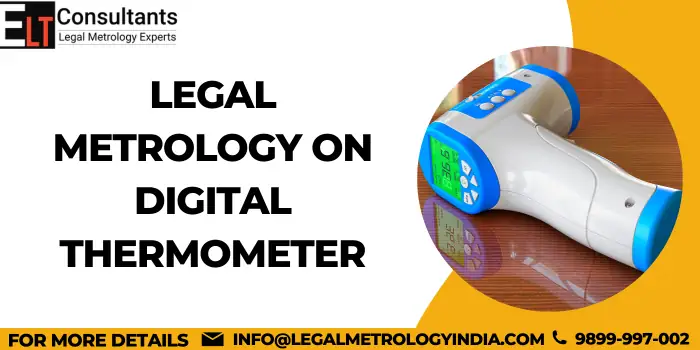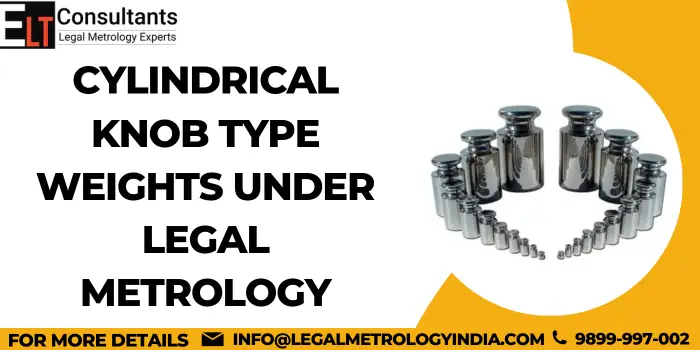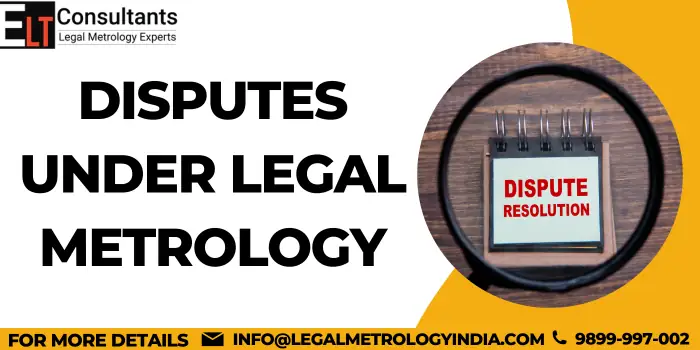Legal Metrology on Digital Thermometer
The Digital Thermometer is well known to all of us and we are all aware of the Digital Thermometer facts. It is a temperature-sensing instrument that is easily portable. The digital thermometer has a convenient digital display and a permanent probe through which a person can see their body temperature. It works on its type of sensor, which includes RTD (Resistance Temperature Detector), thermistor, and thermos couple. Compliance with the Act is necessary to keep yourself away from Legal Metrology Disputes. The digital thermometer is a measuring instrument, which covers under the Legal Metrology Act 2009 because all the weights and measuring instruments should be registered under the Legal Metrology Act, Ministry of Consumer Protection, and Weight and Measurement. Thermometer Registration under Legal Metrology Thermometer Registration under Legal Metrology (Model Approval) Rules, 2011. In accordance with the Legal Metrology model approval Rules 2011, it is mandatory for all importers, manufacturers, or repairers to get themselves registered with the model approval rules 2011 of the Legal Metrology wings under the ministry of consumer affairs. The manufacturer or importer of any kind of weight measurement is required to get himself registered under the Legal Metrology Act. As we are all aware now, the digital thermometer under legal metrology is a kind of measuring instrument, so the importer or manufacturer, packer, or dealer of the digital thermometer needs to get himself registered under the Legal Metrology (model approval) rule 2011. Process of Registration under the Legal Metrology Just like the process of every registration for the manufacturer and importer to be done under the Legal Metrology Act, there is a process for the registration of a manufacturer, importer, dealer, or seller who deals in the digital thermometer in a prescribed manner. The process of registration is given below: Fill the Application Form The primary responsibility of the applicant is to fill in the application form. If the applicant is not able to fill in the form, then he may share the preliminary information with ELT Legal Metrology consultancy expert, which means every manufacturer, packer, or importer of any weight and measure has to share the details of the product with ELT Consultancy of legal metrology. Documents Submission The second step for the registration is to submit the regulatory documents, which means any product comes under the scope of legal metrology (model approval) rules 2011, the manufacturer of such weight and measure product has to submit the required documents. The applicant had to fill out the application and attach all the required documents with the application. Submit the Application Form After fulfilling the above-mentioned steps, the applicants have to submit the application. If, in any case, the applicant faces any kind of problem, then he may take the help of a legal expert or legal consultancy. However, the application can be submitted by both online or offline methods to the central legal metrology department and online in DOT. Assigning an Officer Next step is to assign an legal metrology officer, it means that after submitting an application, an officer will be assigned to the headquarters by the Central Legal Metrology Department to inspect the application and the attached documents. Test by NABL Lab Testing will be done by NABL Lab. After assigning an officer to the application and after receiving the sample, the test will be conducted, and the result of the sample will decide the further process. It means if the sample is approved, then the applicant can proceed further. If the sample fails, the applicant has to remove the objection with the proper and valid explanation before the controller of legal metrology. Certificate of Registration by Legal Metrology Department The legal metrology department will grant the approval. After fulfilling all the above steps in a proper manner, the officer of the legal metrology department, if things fit and are satisfied with the answers of the applicant, may grant a certificate of registration under the legal metrology model approval rules 2011. Infrared thermometers under legal metrology Consultancy for Thermometers under Legal Metrology If any manufacturer, importer, or packer of thermometer wants to get any kind of help in filling out the application, attaching the documents, or with any kind of compliance with the acts and rules of legal metrology and the person is facing any kind of problem, then he may consult to the ELT legal metrology consultancy for the proper guidance and best suggestions. A legal metrology consultant can guide you through the process of registration and obtaining the license under the legal metrology act without putting you in any kind of trouble. They will also let you know about the legal metrology offices where you can file the application. A legal metrology consultant or legal metrology expert can also help you with filing an application. You can rely on them and they will make sure that your work is done on time.










